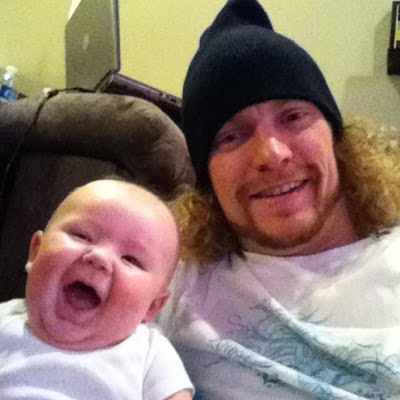I stayed up til 3am, watching youtube videos on Jerusalem, wanting to understand more about the place where Jesus walked. I wanted to find Cleon W. Skousens video on Prophecy Visit Israel but couldn't, I think you can buy it from Living Scripture Co.
This morning I opened up my facebook on the net and this was the first post I read by Ryan Hawks, I loved it so much that I had to post it in my blog...
I couldn't copy and paste the story off of Ryans post so I found it in Jeffrey R. Hollands talk "For Times of Trouble" BYU Devotional March 18, 1980...
As you know, the Brethren used to announce in general conference the names of those who had been called on missions. Not only was this the way friends and neighbors learned of the call, more often than not it was the way the missionary learned of it as well. One such prospect was Eli H. Pierce. A railroad man by trade, he had not been very faithful in Church meetings—“even had my inclinations led in that direction, which I frankly confess they did not,” he admitted. His mind had been given totally to what he demurely calls “temporalities.” He said he had never read more than a few pages of scripture in his life and that he had spoken to only one public gathering (an effort which he says was no credit to himself or those who heard him). He used the vernacular of the railroad and the barroom with a finesse born of long practice. He bought cigars wholesale—a thousand at a time—and he regularly lost his paycheck playing pool. Then this classic understatement: “Nature never endowed me with a superabundance of religious sentiment; my spirituality was not high and probably even a little below average.”
Well, the Lord knew what Eli Pierce was, and he knew something else. He knew what I’m pleading for today. He knew what Eli Pierce could become. When the call came that October 5 in 1875, Eli wasn’t even in the Tabernacle. He was out working on one of the railroad lines. A fellow employee, once recovered from the shock of it all, ran out to telegraph the startling news. Brother Pierce writes, “At the very moment this intelligence was being flashed over the wires, I was sitting lazily thrown back in an office rocking chair, my feet on the desk, reading a novel and simultaneously sucking on an old Dutch pipe just to vary the monotony of cigar smoking.” (For my friends in the English Department I would just hasten to add that the novel reading was probably a more serious transgression than the pipe smoking.)
He goes on. “As soon as I had been informed of what had taken place, I threw the novel in the waste basket, the pipe in a corner [and have never touched either to this hour]. I sent in my resignation . . . to take effect at once, in order that I might have time for study and preparation. I then started into town to buy [scripture].”
Then these stirring words:
Remarkable as it may seem, and has since appeared to me, a thought of disregarding the call, or of refusing to comply with the requirement, never once entered my mind. The only question I asked—and I asked it a thousand times—was: “How can I accomplish this mission? How can I, who am so shamefully ignorant and untaught in doctrine, do honor to God and justice to the souls of men, and merit the trust reposed in me by the Priesthood?”
With such genuine humility fostering resolution rather than defeating it, Eli Pierce fulfilled a remarkable mission. His journal could appropriately close on a completely renovated life with this one line: “Throughout our entire mission we were greatly blessed.” But I add one experience to make the point.
During his missionary service, Brother Pierce was called in to administer to the infant child of a branch president whom he knew and loved. Unfortunately, the wife of the branch president had become embittered and now seriously objected to any religious activity within the home, including a blessing for this dying child. With the mother refusing to leave the bedside and the child too ill to move, this humble branch president with his missionary friend retired to a small upper room in the house to pray for the baby’s life. The mother, suspecting just such an act, sent one of the older children to observe and report back.
There in that secluded chamber the two knelt and prayed fervently until, in Brother Pierce’s own words, “we felt that the child would live and knew that our prayers had been heard.” Arising from their knees, they turned slowly only to see the young girl standing in the partially open doorway gazing intently into the room. She seemed, however, quite oblivious to the movements of the two men. She stood entranced for some seconds, her eyes immovable. Then she said, “Papa, who was that . . . man in there?”
Her father said, “That is Brother Pierce. You know him.”
“No,” she said, matter-of-factly, “I mean the
other man.”
“There was no other, darling, except Brother Pierce and myself. We were praying for baby.”
“Oh, there was another man,” the child insisted, “for I saw him standing [above] you and Brother Pierce and he was dressed [all] in white.”
Now if God in his heavens will do that for a repentant old cigar-smoking, inactive, swearing pool player, don’t you think he’ll do it for you? He will if your resolve is as deep and permanent as Eli Pierce’s. In this Church we ask for faith, not infallibility. (See
Biography and Family Record of Lorenzo Snow, pp. 407–13.)



















































